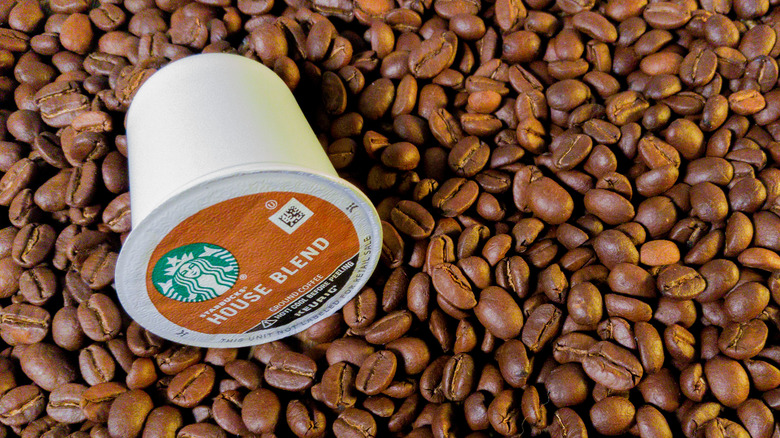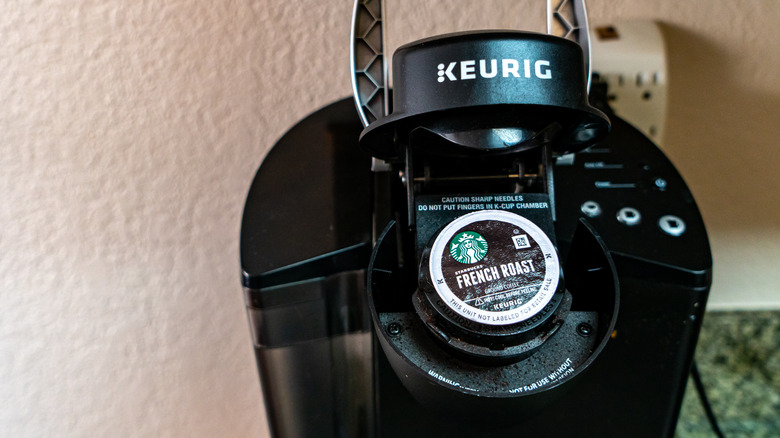Recycling K-Cups Is Easier Than You Think
We may receive a commission on purchases made from links.
Keurig K-cups make grabbing your morning cup of coffee easier than ever (though they brew best at six ounces). Once these pods are done brewing, most people are in the habit of taking them out of the machine and tossing them in the trash. Unfortunately, this isn't very eco-friendly, and you can add hundreds of K-cups per year to landfills, even if you only use them once a day. However, it turns out that recycling K-cups doesn't have to be a hassle.
All K-Cups are recyclable and made from #5 plastic (polypropylene). All you have to do is remove the K-cup from the machine – which you should always do when it's cool enough — remove the foil lid, empty it, and put it in the recycle bin. That said, not all recycling facilities accept K-cups due to their size, even though they're made from recyclable plastic. If your local recycling program doesn't accept K-cups, there are still other options, such as Keurig's K-Cycle program.
With K-Cycle, you fill a bin with your used K-cups and send it to a g2 revolution recycling company using the label that comes with the box. The downside is that a five-pack of bins holding 175 K-cups each will run you $119. While the upfront cost is steep, that does cover 875 K-cups. However, Keurig recommends replacing boxes every two to three weeks to prevent the organic material in the pods from rotting. This adds up to about eight cups daily for three weeks to fill the whole box. Not ideal for a small home, but for large families, businesses, or undergrads, it could be worth considering.
Other ways you can keep K-cups out of landfills
If your recycling company doesn't accept K-cups and the K-Cycle program is a bit too much, you're not out of luck if you want your morning coffee to be a bit greener. For example, there is the Heafty Renew program that accepts K-cups. All you need to do is buy their orange bags and put them out with your recycling. However, this program is currently only available in specific communities in eight states. There is also the TerraCycle program, which, like K-Cycle, has users send in pouches of used pods. That said, this is still pretty pricy, with a single pouch costing $41.
Alternatively, you can look for K-cups made from biodegradable materials. Cameron's Single Serve Pods, for instance, are compostable and made from plant-based materials. Similarly, there are reusable K-cups such as the Keurig My K-Cup Reusable Filter. Reusable cups like this one can be filled with any ground coffee you want and used like a regular K-cup; the only difference is they can be washed and reused over and over. The main downside is you do have to clean them out and take time to fill them with coffee grounds each time, but if you're looking to cut back on how many pods you throw out, it's a worthwhile compromise. Plus, you should already be cleaning your Keurig regularly for great tasting coffee, so adding a rotation of reusable pods to the mix shouldn't complicate things too much!

